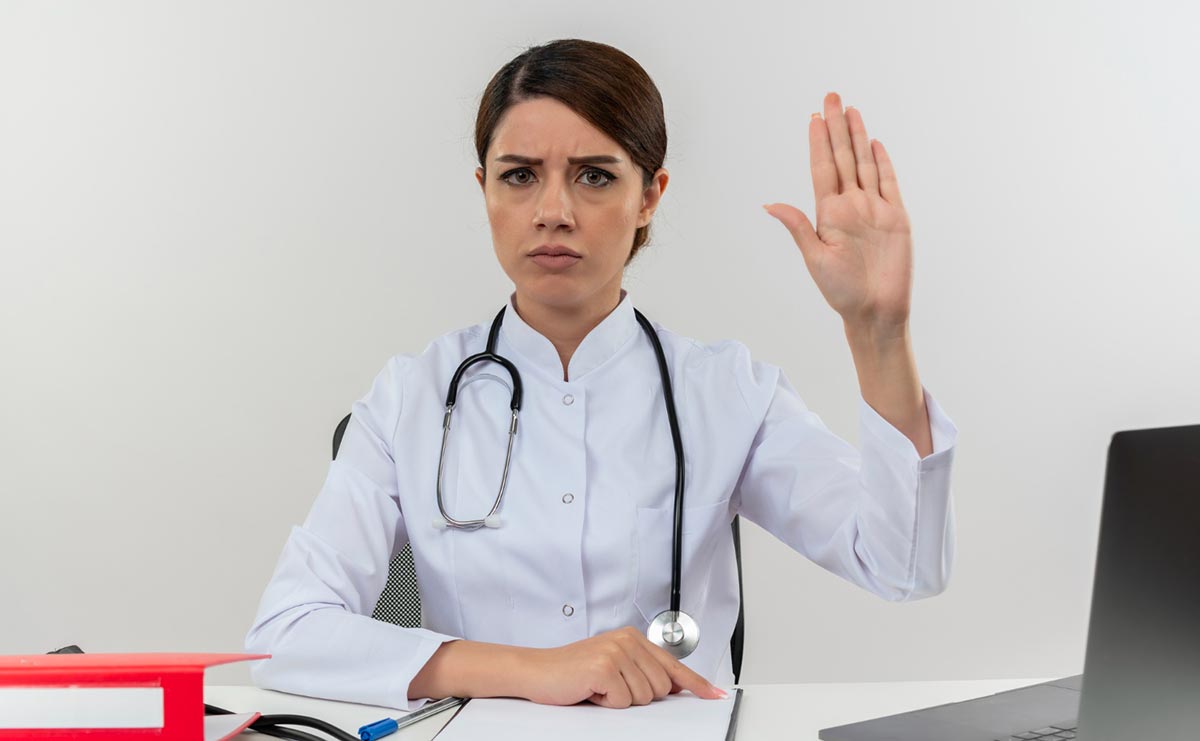Contents
Understanding the Role of a Medical Expert Witness
A medical expert witness is a medical professional who provides specialized knowledge and expertise to assist in the resolution of legal disputes involving medical issues. These experts are typically called upon to testify in court cases or provide written opinions in matters where medical facts and opinions are critical to the outcome. A medical expert witness plays a critical role in bridging the gap between the medical and legal fields, ensuring that complex medical information is accurately and effectively communicated in legal proceedings.
What Are the Roles and Responsibilities of Medical Expert Witnesses?
The role of a medical expert witness is multifaceted and vital in legal proceedings where medical issues are central to the case. Here are the primary roles and responsibilities of a medical expert witness:
Providing Expert Testimony
They explain complex medical concepts, terminology, and procedures to the court in a way that is understandable to laypersons, including judges and juries. A medical expert witness provides their expert opinion on medical issues relevant to the case, such as the standard of care, causation, and the extent of injuries or medical conditions.
Evaluating Medical Evidence
They meticulously review medical records, test results, imaging studies, and other relevant documents to form an informed opinion. Based on their review, they form conclusions about the medical facts of the case, which can include diagnosing conditions, assessing treatment provided, and determining potential negligence.
Determining Standard of Care
They evaluate whether the medical care provided meets the accepted standard of care within the medical community. Additionally, they identify any deviations from the standard of care that may indicate medical malpractice or negligence.
Assessing Causation
They assess whether a specific medical condition or injury was caused or exacerbated by a particular event, treatment, or omission. Their findings can support or refute claims of causation, which is crucial in personal injury and medical malpractice cases.
Providing Written Reports
They provide detailed written reports summarizing their findings, opinions, and the basis for their conclusions. These reports are used by attorneys to support their legal arguments and can be submitted as evidence in court.
Testifying in Court
A medical expert witness can testify in court, presenting their findings and opinions under oath. They respond to questions from both the hiring attorney and opposing counsel during cross-examination, defending their opinions and methodologies.
Educating Legal Teams
They help attorneys understand medical details pertinent to the case, aiding in the development of legal strategies and formulating questions for depositions and cross-examinations of other witnesses.
Maintaining Objectivity and Credibility
They must remain unbiased and provide honest, objective opinions based solely on their medical expertise and the evidence reviewed. Their credibility and ethical conduct are paramount, as their testimony can significantly influence the outcome of a case.
Participating in Depositions
They may provide deposition testimony prior to the trial where they answer questions under oath from both sides’ attorneys. Depositions help clarify the expert’s opinions and allow both sides to understand the expert’s perspective before trial.
Consulting with Legal Professionals
They work with attorneys to develop case strategies, identify strengths and weaknesses in the medical evidence, and prepare for trial. Their analysis can guide settlement negotiations, helping to determine fair compensation based on medical findings.
In essence, the role of a medical expert witness is to leverage their medical expertise to provide objective, informed opinions and testimony that assist the court in understanding medical issues central to legal cases. Their contributions are crucial in ensuring that medical facts are accurately interpreted and applied in the pursuit of justice.
What Are the Benefits of Hiring a Medical Expert Witness in Legal Cases?
Hiring a medical expert witness in legal cases can provide numerous benefits, which can be crucial for the outcome of the case. Here are some key advantages:
Detailed Explanations: They can explain medical terminology, procedures, and diagnoses in layman’s terms, making it easier for non-medical professionals to grasp the key points. This can be particularly useful during the trial when presenting evidence to the jury.
Case Strengthening: A medical expert witness can identify weaknesses in the opposing party’s medical evidence and provide counterarguments. Their testimony can support the credibility of the plaintiff’s or defendant’s claims, thereby strengthening the overall case.
Comprehensive Reports: Medical experts can prepare detailed reports that summarize their findings and opinions, which can be submitted as evidence. These reports often serve as critical documents that outline the medical aspects of the case clearly and concisely.
Support in Cross-Examination: During cross-examination, medical experts can defend their opinions and challenge the opposing party’s expert testimony. Their ability to remain composed and provide consistent answers can reinforce their credibility and the strength of their testimony.
Clarifying Causation and Damages: Medical experts can help establish a clear link between the medical condition and the cause of injury or illness, which is essential for proving liability. They can also assess the extent of damages and future medical needs, aiding in the determination of appropriate compensation.
Assisting in Settlement Negotiations: The presence of a reputable medical expert witness can often encourage settlements before the case goes to trial. Their expert opinion can provide a solid foundation for negotiating fair settlements based on medical facts.
What Qualifications and Credentials Must an Expert Witness Meet in Legal Proceedings?
To be considered an expert witness in legal proceedings, a person must meet certain qualifications that typically include the following:
Education: The expert should have relevant academic qualifications in their field of expertise. This usually includes advanced degrees such as a master’s, doctorate, or other professional qualifications that demonstrate a high level of knowledge.
Experience: Significant practical experience in the relevant field is crucial. This can include years of work, research, or hands-on practice that demonstrates the expert’s ability to apply their knowledge effectively.
Specialized Knowledge: The expert must have specialized knowledge that is beyond that of a layperson in the subject matter. This includes being up-to-date with the latest developments, theories, and practices in their field.
Certifications and Licenses: Many fields require specific certifications or licenses to practice. An expert witness should possess any relevant certifications or professional licenses that validate their expertise.
Publications and Contributions: Contributions to the field through publications, such as journal articles, books, or conference presentations, can enhance the credibility of the expert. Being recognized by peers as a thought leader or authority in the field is beneficial.
Prior Testimony Experience: Experience in providing expert testimony in previous legal cases can be advantageous. It shows that the expert understands the legal process and can effectively communicate their findings to a court.
Reputation and Credibility: An expert’s reputation in their field is important. They should be well-regarded by peers and have a history of ethical practice and integrity.
Objectivity and Impartiality: An expert witness must demonstrate the ability to provide unbiased and objective opinions. They should not have any conflicts of interest that could affect their testimony.
Communication Skills: The ability to clearly and effectively communicate complex information in a way that is understandable to the court, including judges and juries, is essential.
Court Acceptance: Ultimately, the court must accept the individual as an expert witness. This often involves a voir dire process, where the opposing counsel may question the qualifications of the expert to determine their suitability.
These qualifications ensure that the expert witness can provide reliable, credible, and relevant testimony that will assist the court in making informed decisions.
What Are Key Ethical Considerations for Medical Expert Witnesses?
Medical expert witnesses must provide unbiased testimony regardless of which party retains them. Their primary duty is to the court and the truth. They should not act as advocates for the party that hires them but should base their opinions strictly on facts and their professional judgment.
Medical expert witnesses should accept only cases within their specific area of expertise and accurately represent their qualifications. They must stay updated with the latest advancements in their field to provide informed and current testimony. Their testimony must be truthful, accurate, and complete, avoiding any exaggeration or omission of relevant information. Additionally, they should acknowledge the limits of their knowledge and expertise, refraining from speculation beyond the available evidence.
Any potential conflicts of interest, such as financial or personal relationships that could influence their testimony, must be disclosed to both the hiring party and the court. Medical experts should avoid situations where conflicts of interest may arise to ensure their opinions remain unbiased and uncompromised. They must also maintain the confidentiality of patient information and case details, disclosing information only as necessary and permitted by law. All case-related documents and communications must be securely handled to prevent unauthorized access.
Review all relevant case materials and evidence thoroughly before forming an opinion and providing testimony is required. They must prepare detailed, accurate, and clear reports that reflect a comprehensive analysis of the case facts.
Meanwhile, all parties, including attorneys, the court, and opposing experts, should be engaged respectfully and professionally. They might be available for consultations, depositions, and court appearances as needed, demonstrating reliability and commitment. Medical expert ensures that testimony and written reports are clear, precise, and not misleading. If an error is discovered in testimony or reports, the expert must promptly correct it and inform the relevant parties.
Fees for services should be reasonable and not contingent on the case outcome to avoid any appearance of bias. Outlining and agreeing upon the fee structure before commencing work to avoid misunderstandings is essential.
Finally, medical experts must adhere to all relevant legal standards and guidelines for expert testimony, including understanding the specific requirements of the jurisdiction where the case is being heard. They should be well-prepared to withstand rigorous cross-examination, maintaining composure and upholding ethical standards under pressure.
What is the Difference Between a Physician Expert Witness and a Medical Expert Witness?
The terms “physician expert witness” and “medical expert witness” are often used interchangeably, but they can refer to different types of experts depending on the context. A medical expert witness encompasses a broad range of professionals within the medical field. This can include not only physicians but also other healthcare professionals such as nurses, medical researchers, pharmacists, therapists, and other specialists. Their expertise may cover various aspects of healthcare, including nursing standards, medical device safety, pharmaceutical practices, or specific medical procedures and treatments. Medical expert witnesses might focus on areas such as medical administration, healthcare policies, or specific medical conditions and treatments, extending beyond the practice of medicine by physicians.
A physician expert witness, on the other hand, specifically refers to a medical doctor (MD) or doctor of osteopathy (DO) who provides expert testimony based on their medical practice, education, and clinical experience. Their expertise primarily relates to the diagnosis, treatment, and management of patients. They often provide testimony on matters such as the standard of care, medical malpractice, and clinical outcomes. These experts are actively practicing or have significant experience in a particular medical specialty (e.g., cardiology, neurology, surgery) and provide insights based on their hands-on clinical work.
Overall, a medical expert witness can be any healthcare professional with relevant expertise, including those in broader healthcare topics beyond direct patient care. In contrast, a physician expert witness specifically focuses on medical issues related to patient diagnosis, treatment, and physician practice standards. Medical expert witnesses may be called upon in cases involving healthcare systems, medical devices, pharmaceuticals, or nursing care, while physician expert witnesses typically provide testimony in cases related to clinical practices, medical procedures, and physician-related standards of care.
Disclaimer: The content provided on this blog is for informational purposes only and does not constitute legal, financial, or professional advice.







